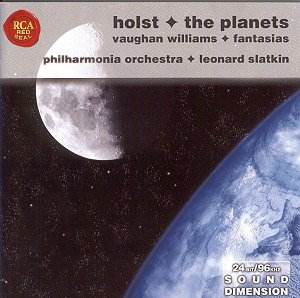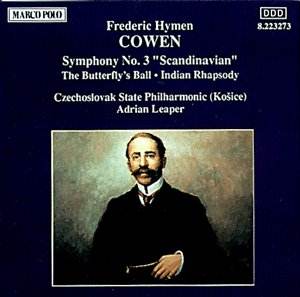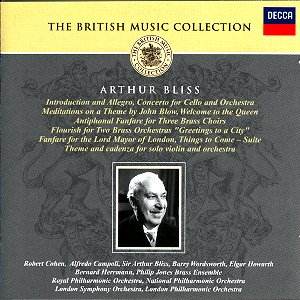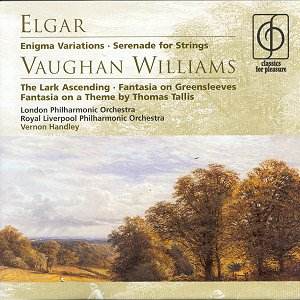 Composer: Gustav Holst
Composer: Gustav Holst
Works: The Planets, Ralph Vaughan Williams: Fantasia on “Greensleeves,” Fantasia on a Theme by Thomas Tallis
Performers: New London Children’s Choir, Philharmonia Orchestra, conducted by Leonard Slatkin
Recording: 1996 (The Planets), 1992 (Fantasia on “Greensleeves”), 1991 (Tallis Fantasia)
Label: RCA
Holst’s The Planets remains an indelible cornerstone of the orchestral repertoire, weaving a tapestry of astrological symbolism and human emotion through vibrant orchestration and innovative rhythmic structures. Composed between 1914 and 1917, the suite reflects both the composer’s fascination with mythology and the tumultuous context of World War I, imbuing each movement with a distinct character that resonates with contemporary audiences. The inclusion of Vaughan Williams’ Fantasia on “Greensleeves” and Fantasia on a Theme by Thomas Tallis adds a rich layer of English choral tradition, making this RCA release a compelling proposition for both novices and seasoned listeners.
Leonard Slatkin’s interpretation of The Planets is marked by a solid understanding of Holst’s idiomatic orchestral language, capturing the contrasts inherent in each movement. The ominous opening of Mars is delivered with bracing intensity, the brass section particularly commendable for its clarity and power. Yet, the strings, while competent, sometimes lack the brooding intensity necessary for the movement to achieve its full emotional arc. This affects the cumulative momentum, resulting in a performance that, while spirited, does not reach the apex of tension that the score promises.
In Venus, Slatkin successfully conjures a serene atmosphere, allowing the strings to float beautifully, but it is the movement Mercury where the orchestra truly shines. The woodwinds, nimble and expressive, dance with a delightful agility that captures the essence of Holst’s vision of the swift messenger. The detailing here reflects a thorough understanding of the score’s intricate textures, showcasing Slatkin’s adeptness at balancing the orchestra’s sound.
Jupiter is performed with vigor, the brass once again standing out, even if the joviality does not quite reach the exuberance found in the finest recordings. Slatkin’s pacing in Saturn is admirable; he navigates the tension effectively, leading to a climactic release that feels both inevitable and satisfying. The closing moments, marked by a serene reconciliation, resonate with a profound sense of closure, showcasing Slatkin’s interpretative sensitivity.
However, Uranus could benefit from a more pronounced grotesqueness in the central march, while Neptune, the ethereal final movement, does not achieve the transcendent quality it often conveys. A lack of dynamic ebb and flow detracts from the mysterious atmosphere, with a few uneven entries marring the otherwise cohesive performance. The New London Children’s Choir contributes effectively, although the choice of a children’s choir over a women’s choir for the ethereal final bars may not provide the full impact that this moment can achieve.
The remastering of this recording under RCA’s “Sound Dimension” series proves to be a highlight, with the sonic quality being notably full and balanced. The engineering captures the orchestral colors vividly, allowing the listener to appreciate the nuances of Holst’s orchestration and Vaughan Williams’ lush harmonies. While this recording does not dethrone established favorites in the canon of The Planets, it offers an accessible and enjoyable interpretation that stands on its merits.
As a package, this disc represents excellent value, especially with the inclusion of Vaughan Williams’ works that complement Holst’s grand vision. The Tallis Fantasia is warm and engaging, though it lacks the profound depth and gravitas found in premier interpretations. Ultimately, while this recording may not replace cherished versions for seasoned aficionados, it provides a solid, budget-friendly entry point into the works of Holst and Vaughan Williams, showcasing performances that are both respectable and ultimately rewarding.



